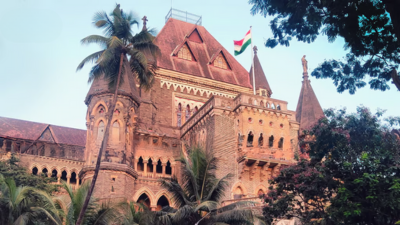The Bombay High Court has quashed the First Information Report (FIR) filed against judicial officer Nasirhusen Mohiddin Jamadar, who was accused of abetting the suicide of Bhupal Ramu Mali, a man embroiled in a property dispute with Jamadar’s brother. The case, Nasirhusen Mohiddin Jamadar v. The State of Maharashtra & Anr., involved charges under Section 306 of the Indian Penal Code, which deals with the abetment of suicide.
The Court ruled that the evidence presented in the case was insufficient to substantiate the charges. A bench of Justices Bharati Dangre and Manjusha Deshpande described the allegations as “too far-fetched.” It stated that the material in the charge sheet did not establish any instigation or incitement by Jamadar. The judges noted that the evidence failed to meet the required standards for proving abetment of suicide under Section 306.
The tragic incident occurred on June 22, 2016, when Bhupal Ramu Mali, a resident of Miraj in Maharashtra, was found dead after being reported missing by his son. The suicide notes discovered at the scene seemed to implicate Jamadar and his brother, suggesting that their actions had contributed to Mali’s emotional distress and, ultimately, his suicide. The notes indicated that Mali was under considerable strain due to a long-standing property dispute with Jamadar’s brother.
The dispute began in 2010 when the Hirgude family sought to divide a parcel of land in Miraj. Jamadar’s brother purchased an undivided share of the property from the Hirgude family with the consent of the other co-sharers. However, the sale deed was in his name alone, and Jamadar had no direct involvement in the transaction. The situation escalated in 2016 when a court issued possession orders for the land, and Jamadar’s brother took physical possession on April 26. Despite the court ruling in favor of Jamadar’s brother, Mali continued to assert a claim to the property, which caused considerable distress.
Witness testimonies suggested that Mali was frustrated with the property dispute, which further contributed to his emotional turmoil. During the trial, the defense argued that Jamadar had no involvement in either the conflict or the harassment allegedly experienced by Mali. The defense maintained that Jamadar’s only connection to the case was his familial relationship with his brother. The prosecution, however, suggested that Jamadar’s presence and alleged threats had exacerbated Mali’s mental distress, leading him to take his own life.
The Court emphasized that in cases of abetment of suicide, there must be clear evidence of instigation or incitement by the accused. The Court observed that for a conviction under Section 306, there must be proof of “clear mens rea” — a deliberate intent to provoke or cause the suicide. It pointed out that there was no concrete evidence of an active or direct act by Jamadar leading Mali to commit suicide. “In the absence of substantive evidence to establish the occurrence of the incident and with no direct role played by the applicant, it would be inappropriate to rely solely on the suicide note to implicate him,” the Court said.
Additionally, the Court noted that Jamadar had distanced himself from the property dispute, having been serving as a judge in Nagpur at the time of the incident, which further weakened the connection between him and the alleged abetment of suicide.
In its ruling, the Court exercised its inherent power under Section 482 of the Criminal Procedure Code to quash the FIR. The Court emphasized the importance of protecting individual liberty, stating, “Human liberty, which is the most cherished constitutional value, must be protected by us, by exercising the inherent power conferred under Section 482 of the Criminal Procedure Code.”
The Court’s decision highlights the necessity of strong, direct evidence when charging someone with abetment of suicide, primarily when the charges rely on ambiguous or indirect allegations, such as those found in a suicide note.
Senior Advocate Ashutosh Kumbhakoni, instructed by advocates AM Kulkarni and Manoj Badgujar, represented the judicial officer, while Additional Public Prosecutor JP Yagnik appeared for the State.

















